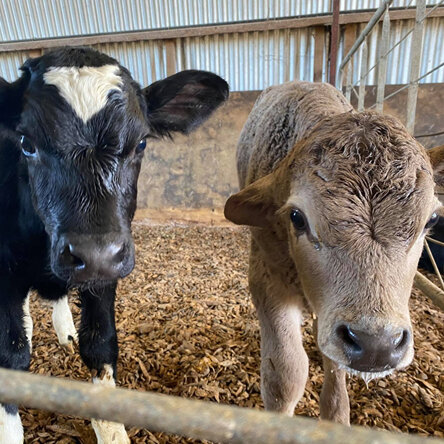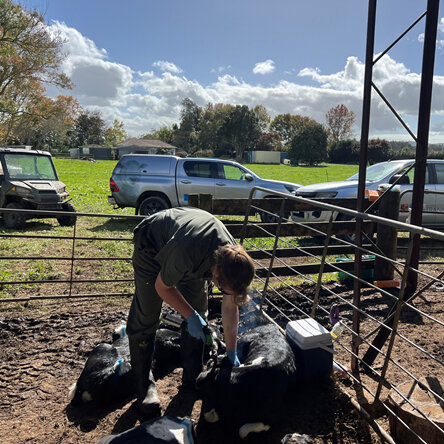Franklin Vets
Franklin Vets - excellence in veterinary care for dairy, farming, lifestyle, equine and household pets. BESTPRACTICE ACCREDITED NZ.
Your account is powered by Storbie. To edit your profile visit my.storbie.com
Your account is powered by Storbie. To edit your profile visit my.storbie.com

A newborn calf is born with NO immunity to infection.
In humans, babies receive some antibodies across the placenta from Mum. No antibodies pass across the placenta from the cow to the calf and the newborn calf is totally dependent on antibodies received from the cow in colostrum.
To allow absorption of these antibodies the gut of a newborn calf is temporarily ‘open’. The key word there is ‘temporarily’ and the timing of that first feed is critical because the ability to absorb antibodies decreases from birth with the gut closing for absorption at 24 hours.
QUALITY: Only feed gold colostrum to calves.
Gold colostrum:
QUANTITY: Aim for 10% of the calf’s body weight (a 30kg calf should get 3L and a 40kg calf should get 4L)

Calves can be disbudded from 2 weeks of age, ideally before 8 weeks.
If you have any questions or would like to run through a Calf WOF with one of our vets please give us a call.
Franklin Vets - excellence in veterinary care for dairy, farming, lifestyle, equine and household pets. BESTPRACTICE ACCREDITED NZ.



